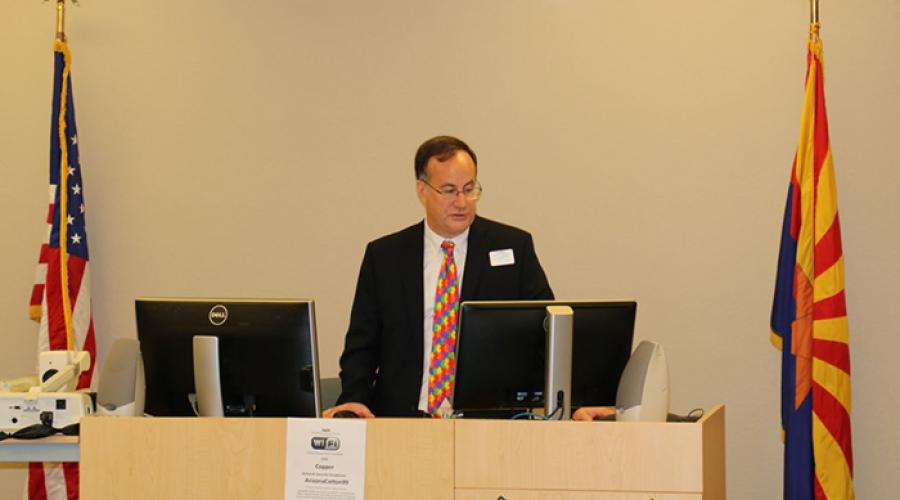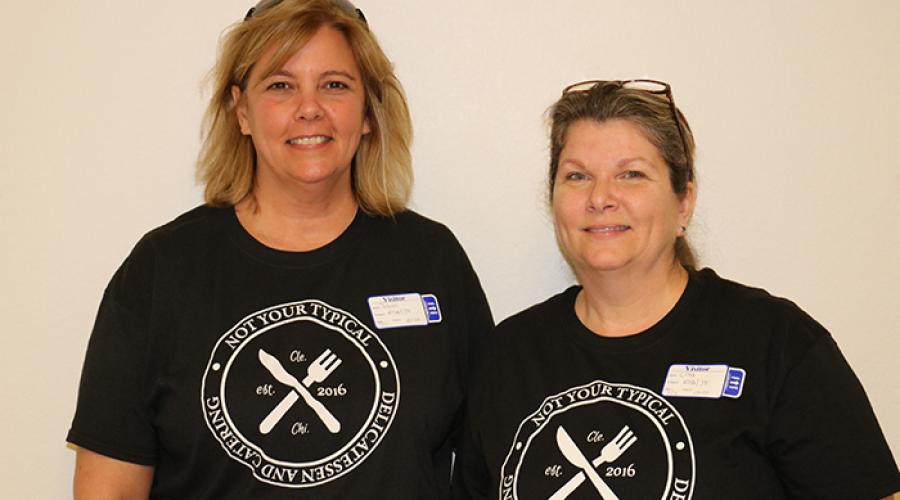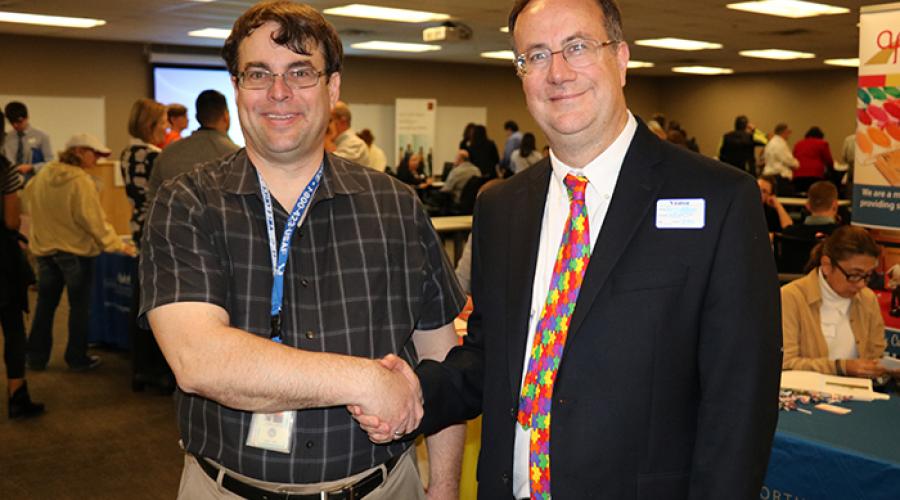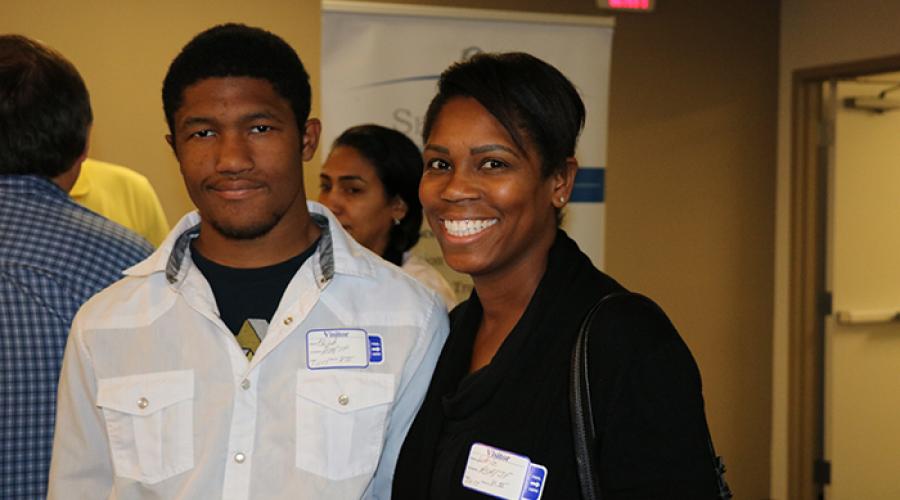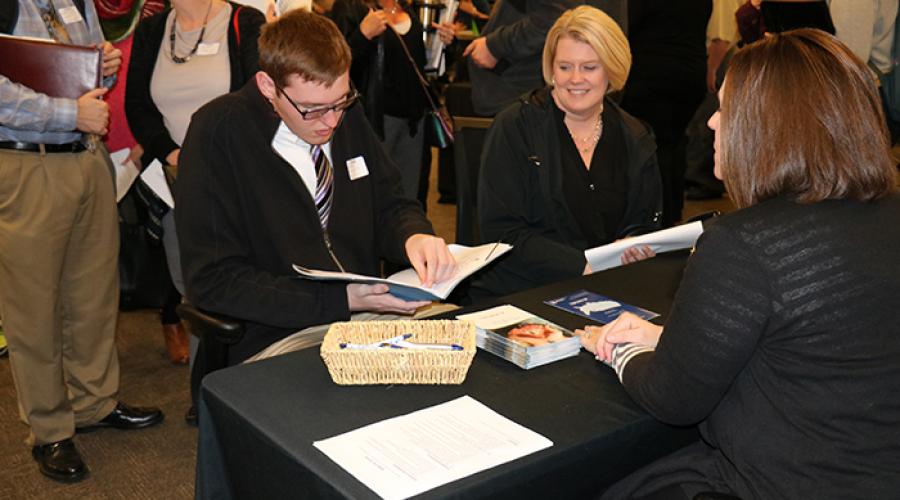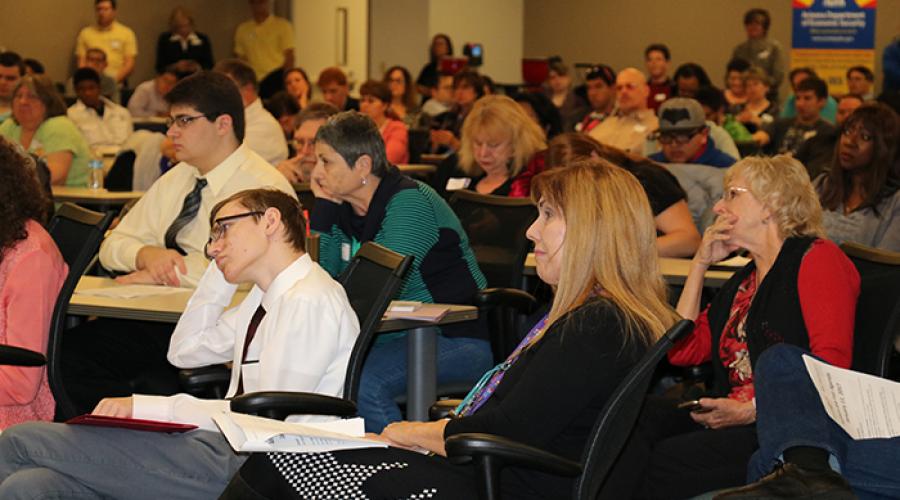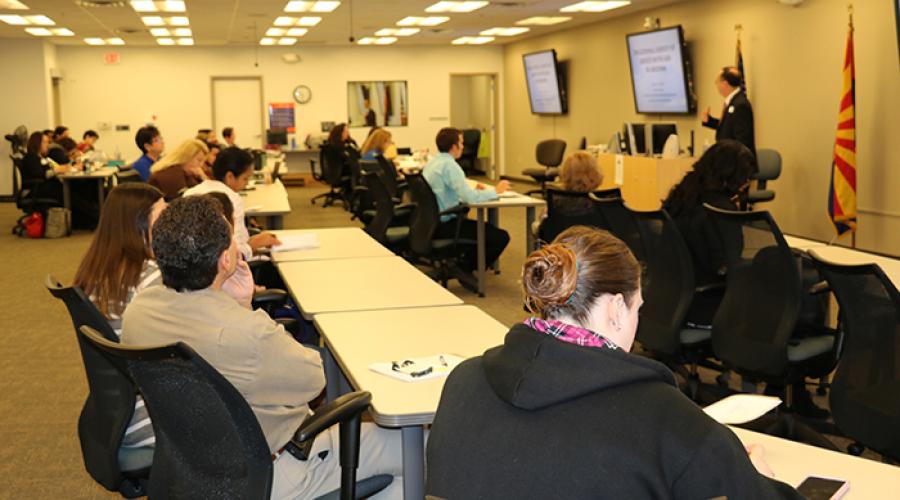DES Community Event: Success at Arizona’s First Autism Job Fair
Would it surprise you to hear nearly 80% of adults in a certain demographic are unemployed in the U.S. because they are often misunderstood and unable to excel during a job interview? That is the sad truth for many adults with autism.
That statistic comes from Professor James B. Adams, who heads up ASU’s Autism/Asperger’s Research Program and worked with the Department of Economic Security (DES) Employment and Rehabilitation Services (DERS) , AZ Assist and the Autism Society of Greater Phoenix to bring Arizona its first-ever Autism Job Fair.
The reaction to this event was more than the organizers anticipated. Expecting somewhere around 175 attendees, a whopping 571 individuals attended. The job fair was the brain-child of DERS Business Service Representative, Tim Stump.
Adams wasn’t as surprised by the turnout, “This is the first time there has ever been a job fair in Arizona for people with autism, so they are desperate to attend.”
The event kicked off with informational workshops for both employers and job seekers. Professor Adams presented to employers on best practices for employing adults on the autism spectrum. Job seekers received tips from Adams’ assistant and research coordinator, Devon Dale, on how to find and keep a job.
Following the hour-long workshops, more than 35 hiring employers participated in the job fair. It was an opportunity for individuals to distribute their résumés and network with hiring employers – something many of them have never done.
Among those first timers was Nick Smith, accompanied by his mother, Cindy. Nick explained that while he is open to lots of employment opportunities, he is hoping to get a call from the REI representatives to work in their warehouse.
Adams says the number of unemployed adults with autism is a huge problem.
“They have one of the worst employment rates among people with disabilities,” he explained. “Part of the problem is due to a lack of understanding, and part is poor social skills to get them through the interview.”
That is one of the reasons so many job seekers attended the fair with an advocate in tow. Advocates are often times a friend, parent or teacher who can help make an overwhelming experience, such as a crowded job fair, more manageable. Adams says having an advocate, or as he calls them, a “worksite peer mentor,” can make a world of difference for that person in the workplace. He recommends asking a company to dedicate 5-10% of one employee’s time to serve in this capacity.
“Just someone to give them a little help, especially when it comes to the social aspects of the job,” said Adams.
The first, and often times, toughest of the social aspects these individuals have to face is the job interview. Adams says asking a person with autism to speak and act in a way that may be desirable to employers during the interview can be like “asking a blind person to see for 15 minutes.”
That’s why it is so important to educate employers on what to expect when a person with autism comes in for an interview. He says employers should know the job seeker’s strengths and weaknesses so they can put them in a role where they can succeed.
One employer at the fair, James Prestijohn, is familiar with the unique accommodations that certain individuals with autism may seek when choosing a vocation. Prestijohn places workers in temporary food service jobs at special events like the Phoenix Open.
“My brother has high-functioning autism and works for me just fine. But this may not be the perfect role for everyone since it requires you to go to a lot of different places and some of the venues can be very loud,” said Prestijohn.
“People with autism are just like anyone else; no one is the same,” said Stump. He points out the needs for a person with autism are not a one-size-fits-all and took these needs into consideration when choosing the venue for the job fair. “I thought the carpeting here [at a Phoenix DES office] would help keep the noise down.”
Stump, who also heads events like the Re-Entry Job Fair and Expo, which connects ex-felons to felon-friendly employers, has a passion for finding rewarding employment for the unemployed. He was thrilled when he heard that employers had interest in an autism job fair.
Valley employers, including the owners of Not Your Typical Deli in Gilbert, are finally opening their doors to workers with disabilities. Not Your Typical Deli made headlines last July when they hired 15 disabled Arizonans to work in their shop. After word spread, the sandwich shop’s owners received more than 170 job applications from other disabled job seekers in need of employment.
“We have people with autism who have four-year degrees and straight A’s who aren’t working, and it’s a shame,” said Stump. The hundreds in attendance reiterated the need in the community for a job fair of this type, and Stump is ready to do it again.
Vocational Rehabilitation counselors within DERS can work with individuals on the autism spectrum to place them in long-term, fulfilling employment and can also provide assistance with other essential resources. For more information about the DES Vocational Rehabilitation program, please visit our Rehabilitation Services page.
By Jillian Seamans


